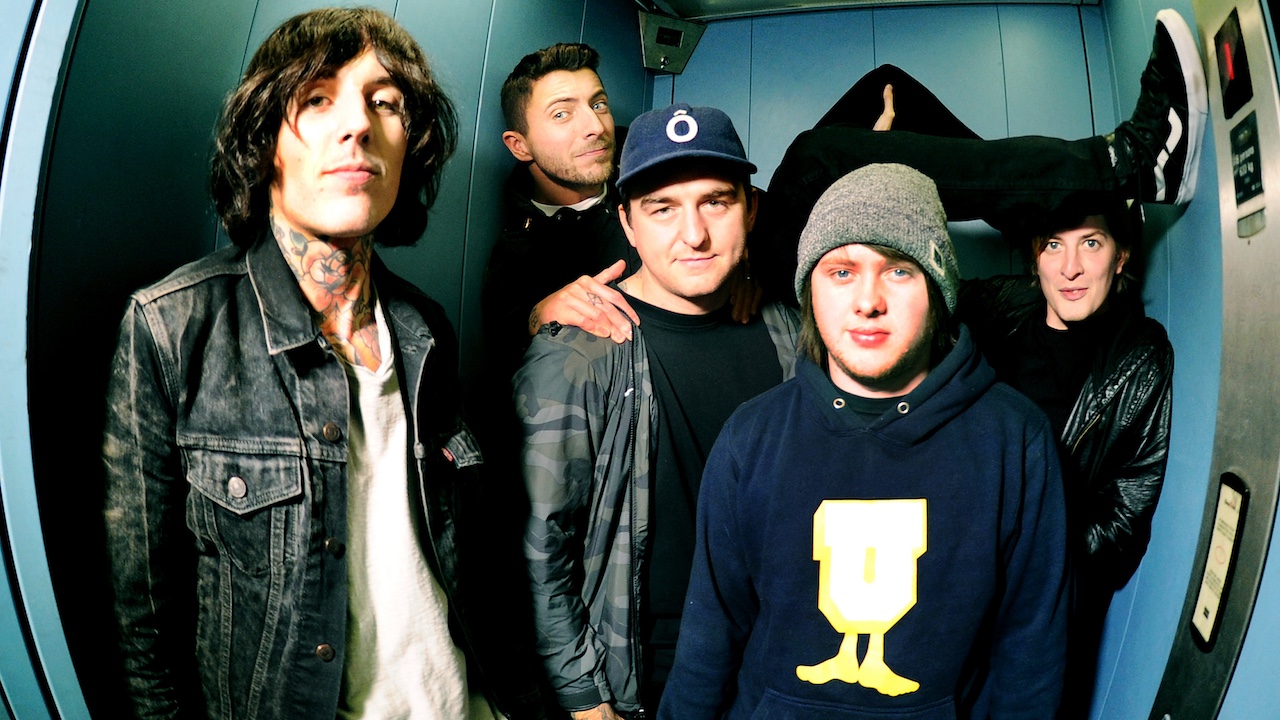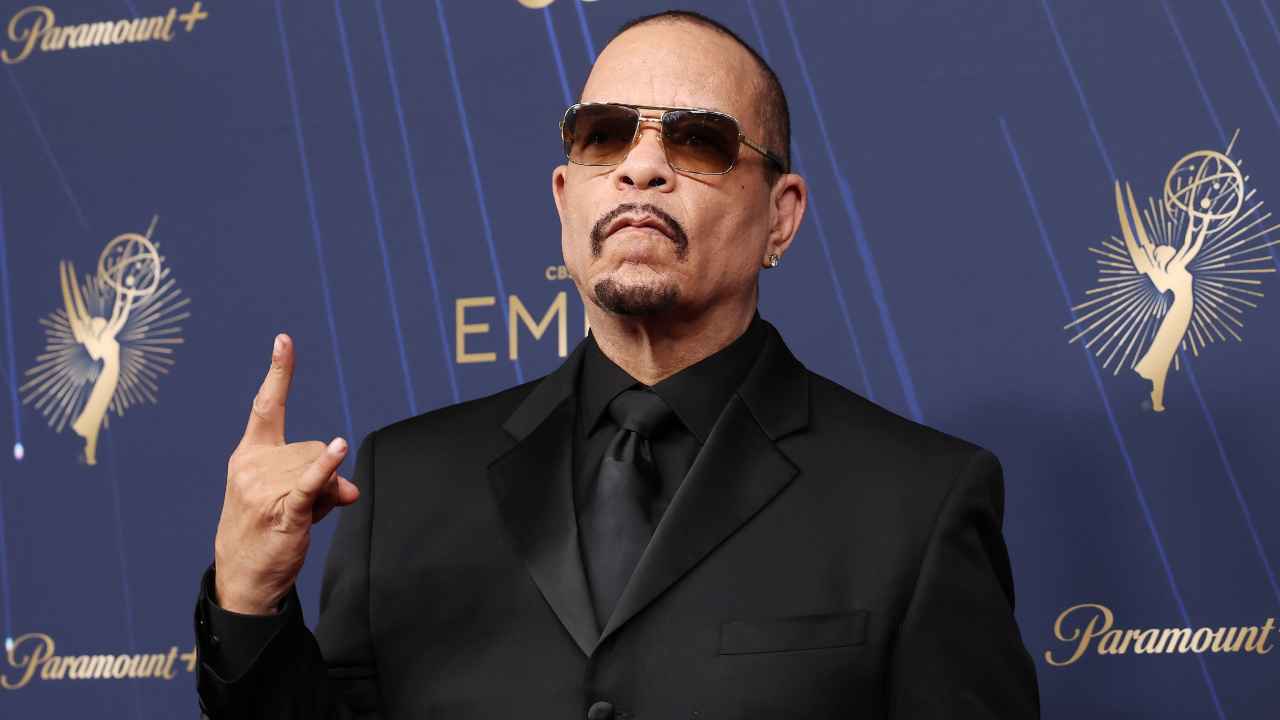'We’ve proved ourselves wrong so many times and got so much bigger than we ever thought we would." Ten years on, the story of That’s The Spirit, the album that sent Bring Me The Horizon stratospheric
The Sheffield metal giants are one of the world's biggest bands these days and their fifth record is the one that sent them on the path to superstardom

Bring Me The Horizon are a band with more experience than most of playing Reading and it’s not hard to imagine that at some point during their triumphant headline sets last month, frontman Oli Sykes’ mind was cast back to their very first appearance at the festival back in 2008. It’s fair to say the fresh-faced young metallers from Sheffield were up against it, spending their short set dodging all manner of missiles from the disgruntled crowd: kebab sauce, bags filled with woodchip, cameras, even phones. It was not a reaction that suggested Sykes and his bandmates would be coming back as headliners in the future.
But, as has been long proven, BMTH are made of stern stuff. Watching Sykes stalk the stage and command the crowd with his trademark mix of aggro and boisterous, expletive-laden charisma last weekend was to see a band and their singer revel in their natural environment. No-one would’ve believed it in 2008, but topping festival bills is where Bring Me The Horizon were always meant to be. It’s a transformation that was laid down in 2015 with the release of their fifth album That’s The Spirit.
The album turns 10 this month and marked a period of all-change for the quintet, who moved away from their metalcore beginnings and hunkered down on the alt-rock, electronic-tinged sound they’d introduced on 2013’s Sempiternal, emerging with their most accessible and anthemic record yet.
Bring Me The Horizon might have already been on the up – and they had already headlined an arena when they played Wembley in 2014 – but this is where they became a bona fide arena band as opposed to a sizeable group who can get away with a one-off massive show every now and then.
I joined them at Cardiff’s Motorpoint Arena in November, 2015, for a Q Magazine feature as they embarked on their tour to support That’s The Spirit, their biggest round of dates yet. It was a Friday night, it was raucous, it was Cardiff – at one point in the evening, I witnessed a man argue with door staff who wouldn’t let him back into the venue. “But you’ve got to let me back in,” he declared, “what about my shoes?”, at which point everyone looked down to see, yes, he was standing there in the freezing cold in his socks.
Backstage a few hours earlier, Sykes had reflected on Reading Festival being a barometer of their turnaround success given the barrage of abuse they had received on their first visit. “I’ve seen bands go from loved to hated but once your band is hated that much, it’s really hard to convince people otherwise,” he said. “Going back and seeing the whole place go fucking mental for us, I can’t think of a band who’ve done that before.”
Sykes had reason to feel confident – That’s The Spirit had entered both the UK and US charts at Number 2. Bring Me The Horizon were now officially a huge mainstream success, the decision to switch up their sound and retool their thrashy early output into something that could be played on Radio 1 paying off in a big way.
The latest news, features and interviews direct to your inbox, from the global home of alternative music.
It was an evolution that had been coming, Sykes explained, but it wasn’t pre-planned. “It wasn’t like, ‘This is what we want to do next’,” he said. “When we did Drown and Sempiternal, in a way it was a subconscious experiment of seeing how people would react to us doing something quite far removed from anything we’ve done before.
"Doing that single, and recording and producing it ourselves, gave us that bit of confidence to be like, ‘Next time we’re gonna do exactly what we wanna do without any compromise’. We knew what we wanted to do, but you see so many bands try and break out of what they’re associated with and it usually falls on its face. Doing Drown and seeing the overwhelming positive reaction to that, we felt we could go in the studio and didn’t have to keep anyone happy, we could just go in and do what we want.”
One of the key phrases they used during the making of the record, he explained, was that “it would be cool to have more swagger” and have the sonic wiggle-room to be a little more playful. “Sempiternal takes itself quite seriously for the most part and as good as that works, it limits you from being able to do certain things,” he reasoned. “Happy Song, for instance, the lyrics are quite sarcastic and jokey in a black humour kind of way. It wouldn’t have worked on Sempiternal cos the music and the way it’s presented, you wouldn’t get that contradiction.”
A major change was Sykes' decision to sing where once a larynx-bursting scream would’ve done the job. It was a switch he’d introduced on Sempiternal but he wanted to prove he could do it properly, not entirely convinced that he’d nailed it on the previous record. “People were impressed last time but I always felt like it was a tag on, like, ‘He’s got a good voice cos I’m used to hearing him screaming one note’,” he said. “I really wanted this one to be like, He’s really got a good voice and anyone can listen to it and go, ‘That’s good singing’.”
It was quite the leap for someone who had literally never sung a note before deciding to do it on a record that went Top Ten – the first time he tried, bandmate Jordan Fish actually wondered if Sykes was tone deaf. It was a leap of faith that took practice and more than a few singing lessons. “It’s a weird thing to just do screaming and aggressive vocals for ten years of your career,” he said. “I’d never even warmed up once in my life and now I need to reprogram my brain for singing,” he said. “I’m still nowhere near as good as I need to be.”
The set-up backstage was one befitting their new status as a band headlining huge venues. There was catering (“the first time we’ve had that!” beamed Sykes), two dressing rooms, one fitted with an entertainment system where they kept their Xbox and a stereo and another with all their instruments set up to warm up, with a third room transformed into a gym. They’d brought a personal trainer along with them.
“He’s a mate from Sheffield and I’ve trained with him for a couple of years,” Sykes said. “I said it’d be a good thing to do and all the band got super into it. He was up for doing it for cheap.”
Hold on, I said, you’ve just had a mega-successful hit record, why did you have to get him to do it for cheap?! “I know, but he wanted to get into it!” Sykes protested. “The training keeps us happy and fit enough to put on a good show, and mentally and physically fit. It does seem like a luxury but we took all the booze off the rider and it pays for it.”
It was a mindset indicative of a band determined to keep pushing forward, getting bigger and break new ground, an MO that has kept them in good stead over the decade since That’s The Spirit was released. These days, they are well established as a monstrously huge group.
“We’ve proved ourselves wrong so many times and got so much bigger than we ever thought we would,” Sykes said back then. “Why not try and be one of the biggest bands in the world?” The odds are that, right now, Sykes is plotting where next for him and his band. As That’s The Spirit established, sitting still was never an option for Bring Me The Horizon.
Niall Doherty is a writer and editor whose work can be found in Classic Rock, The Guardian, Music Week, FourFourTwo, Champions Journal, on Apple Music and more. Formerly the Deputy Editor of Q magazine, he co-runs the music Substack letter The New Cue with fellow former Q colleague Ted Kessler. He is also Reviews Editor at Record Collector. Over the years, he's interviewed some of the world's biggest stars, including Elton John, Coldplay, Radiohead, Liam and Noel Gallagher, Florence + The Machine, Arctic Monkeys, Muse, Pearl Jam, Depeche Mode, Robert Plant and more.
You must confirm your public display name before commenting
Please logout and then login again, you will then be prompted to enter your display name.


